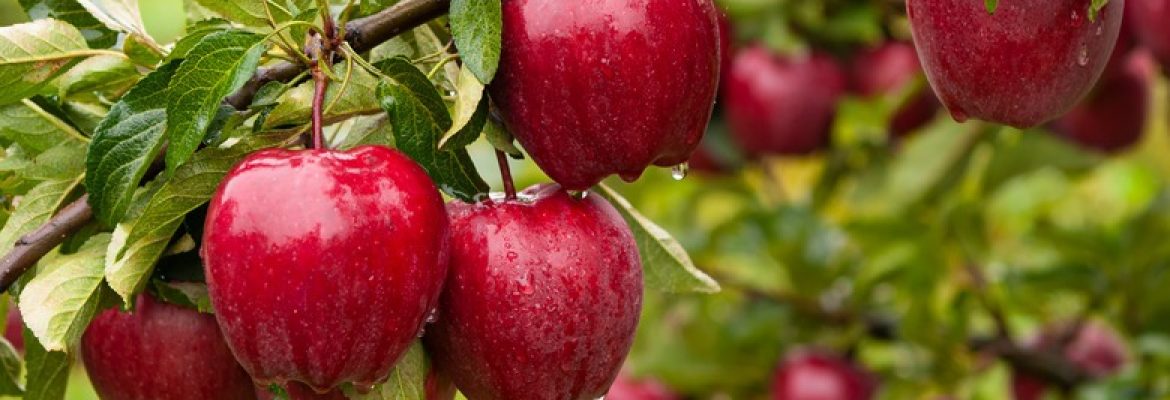An apple is a crunchy, bright-colored fruit, one of the most popular in the United States. It is produced by an apple tree (Malus domestica). Apple trees are cultivated worldwide and are the most widely grown species in the genus Malus. The tree originated in Central Asia, where its wild ancestor, Malus sieversii, is still found today. Apples have been grown for thousands of years in Asia and Europe and were brought to North America by European colonists. Apples have religious and mythological significance in many cultures, including Norse, Greek, and European Christian tradition.It comes from the Rosaceae and belongs to the order of Rosales.
The apple is a deciduous tree, generally standing 2 to 4.5 m (6 to 15 ft) tall in cultivation and up to 9 m (30 ft) in the wild. When cultivated, the size, shape and branch density are determined by rootstock selection and trimming method. The leaves are alternately arranged dark green-coloured simple ovals with serrated margins and slightly downy undersides.
There are more than 7,500 known cultivars (cultivated varieties) of apples. Cultivars vary in their yield and the ultimate size of the tree, even when grown on the same rootstock. Different cultivars are available for temperate and subtropical climates. The UK’s National Fruit Collection, which is the responsibility of the Department of Environment, Food, and Rural Affairs, includes a collection of over 2,000 cultivars of apple tree in Kent. The University of Reading, which is responsible for developing the UK national collection database, provides access to search the national collection. The University of Reading’s work is part of the European Cooperative Programme for Plant Genetic Resources of which there are 38 countries participating in the Malus/Pyrus work group.
Below are some health benefits of an apple:
- IT MAY PREVENT OBESITY.
Animal studies have shown that pectin extracted from apples may help regulate the gut microbiome (beneficial gut bacteria), which in turn may help prevent obesity and other inflammatory disorders. Studies on humans also look promising, but more research is needed.
- IT MAY PROTECT AGAINST HEART DISEASES.
Apples are rich in polyphenols, protective plant compounds, one of which is a flavonoid called quercetin. Research by the American Journal for Clinical Nutrition found that those with higher quercetin levels (mainly through eating apples) had a lower risk of several chronic diseases including heart disease and even asthma.
- IT MAY BENEFICIAL FOR BONE HEALTH.
Fruit and vegetable intake are thought to be associated with greater bone density and improved bone health. Findings from a study on healthy women suggested apples, in particular, may minimise the amount of calcium lost from the body and hence improve bone strength.
- IT MAY PROTECT AGAINST DIABETES.
Apples are low on the glycaemic index (GI) thanks to their fibre content. This, together with their high flavonoid content, may help to improve insulin sensitivity, which is important both for weight management and preventing diabetes.
SOURCES:
- World apple situation”. Archived from the originalon 11 February 2008. Retrieved 24 January 2008.
- Weaver, Sue (June–July 2003). “Crops & Gardening – Apples of Antiquity”. Hobby Farms Magazine. Archivedfrom the original on 19 February 2017.
- John Lloydand John Mitchinson (2006). QI: The Complete First Series – QI Factoids (DVD). 2 entertain.
ARTICLE BY RHODA OBODAI.

